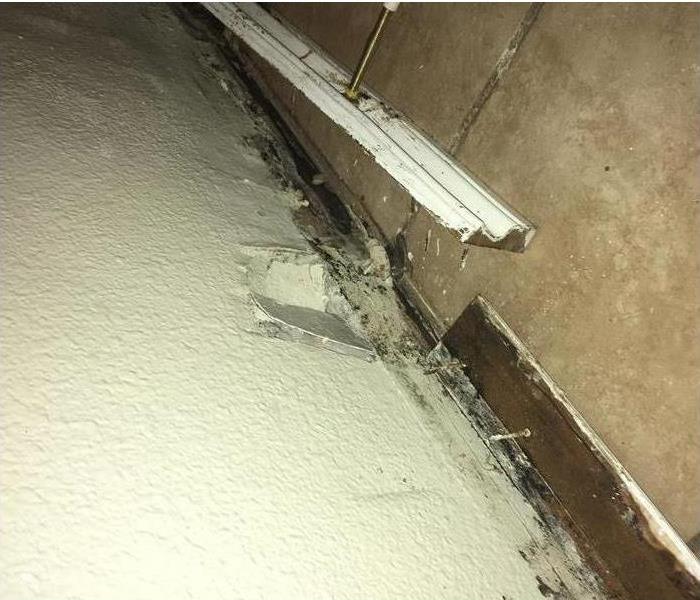Why Floods are the Perfect Breeding Ground for Mold Development
2/15/2022 (Permalink)
 Water damage can lead to microbial growth in as little as 48 hours. Give SERVPRO a call at the first signs of a water leak to prevent mold.
Water damage can lead to microbial growth in as little as 48 hours. Give SERVPRO a call at the first signs of a water leak to prevent mold.
Why Are Floods The Ideal Breeding Ground For Mold Growth?
It’s bad enough that your business flooded. You now have to wade through the lengthy mitigation and restoration process, hoping that your business doesn’t go under in the process. However, while your focus is rightfully on your business, you should refocus your attention to the possibility of mold growth. Flooding creates the perfect breeding ground for mold development for many reasons.
1. Floodwaters
Floodwaters are not the cleanest water. Typically, the water is filled with bacteria. Additionally, it takes time for flooding to recede which means that your business is left with a pool of standing water until city sewers or natural drainage take effect. This is a perfect concoction for mold development because mold loves damp and humid environments.
2. No Electricity
Mold growth also thrives in dark areas, so when flooding also leads to sweeping power outages, mold thrives. Additionally, if the power is out then most ventilation systems are out, meaning that the interior of your facility is remaining damp and humid, potentially accelerating mold infestation.
3. Closed Spaces
Mold takes hold within 24-48 hours, and in closed spaces, it is typically at the lower end of that spectrum. Most business owners lock up their facilities tight, with sandbag barricades, as most cities advise. Unfortunately, a tightly sealed facility also contributes to a lack of ventilation.
4. Cleanup Process
Luckily, a fast cleanup response can mitigate the development of mold. Unfortunately, the cleaning process may contribute to a spreading problem because cleaning out requires ventilating the space, which increases air movement and allows for the spread. A mold remediation specialist in the Shoreline, WA, area will be able to assess your property better and help you reduce your risks.
Mold growth can occur quickly after a flood, and unfortunately, the conditions left behind after the storm has passed only increase the likelihood of an infestation. Thankfully, some specialists can help you reduce your losses and get back to business quicker.




 24/7 Emergency Service
24/7 Emergency Service